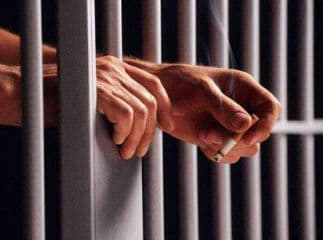Money in Law Enforcement
So I’ve been doing some thinking about the role of money in the judicial process and law enforcement lately. It’s pretty interesting when you sit back and look at how the judicial system works nowadays and how it’s pretty much all about money. Now don’t get me wrong, I’m on the side of law enforcement. I support them just like I do our troops, because whether or not we agree with everything they’re made to do by the powers that be we have to support them as Americans who are entrusted with duties that put their lives on the line. But when it comes to the systems they serve it’s difficult for everyone to give that respect when their bosses are seemingly nothing but glorified loan-sharks and thugs. Let’s take a look.
So let’s start with something simple. Why are most people afraid to speed when they’re driving? Because being pulled over is a horrifying and traumatic experience that you’d rather die than be put through? No. Because you’ll most likely receive a citation and have to pay a fine. The fine itself only being a fraction of the total you’ll be expected to pay so as to not have a warrant issued for your arrest. That’s what keeps people from speeding: the fear of having to pay for a citation, not a little voice deep inside telling them that speeding is “wrong.”
If you listen to people talk who have had some run-ins with the law their most common complaints are about all the money it cost them. Court costs, fines, restitution, things of that nature. Sure, being sent to jail or even prison is the main deterring factor for serious crimes, but when it comes to your lower-degree misdemeanors the biggest hurdles to jump through are the costs. People have to take time off from work to go to court and deal with other court related affairs, depending on the nature of their crimes, which in most cases costs them money, then they have to fork tons of it over for the “costs of prosecution.” These costs go to the county to fund certain “programs” and pay for other indiscernible junk, some of which is important. But wouldn’t it be more reasonable to have taxes pay for those things instead of implementing a staggering 4-to-1 ratio of costs-to-fines?
The probation system is another money-driven endeavor as well, at close inspection. When people charged with crimes that require they be under “supervision” it would appear that they are supervised for the purpose of helping them and keeping them from getting in any further legal trouble. Well, that’s half correct. It is the goal to keep the subject out of any other legal trouble, but not to help them better themselves, just to make sure they can remain a “good earner” and keep paying on their account. Certain circumstances allow the subject under court supervision to be free from said supervision upon the payment in full of their owed fines. If that doesn’t make you wonder, I don’t know what will. It’s like something out of a mob flick; some poor sucker owes one thug money, so that thug makes sure other thugs don’t get their hooks in his cash cow until he gets his dough.

Some of the people put through the ringer for these low-level infractions at a young age can be extremely disheveled and confused about the system for years to come after all is said and done. When you have laws as they are in regards to drugs and alcohol the largest group that is going to be affected is going to be the youth. Not that I personally endorse irresponsible behavior such as drug use and binge drinking, but specifically college-age kids like to experiment with such things, and why shouldn’t they? Think about it, you’re a college kid, living away from home for the first time, you’re around tons of new and exciting people who like to have fun, you want to try new things, gain some life experiences, and the opportunity to smoke marijuana or drink at a party crosses your path. Most people in that situation are going to give it a shot. Thinking about the consequences of one’s actions, though it’s something I’ve always stressed, isn’t something most kids care about — and sometimes they shouldn’t; it’s part of growing up. So you take the chance and it ends up being a mistake — you get caught. All the rigmarole you now have to go through as someone in their late teens with little money who is a full-time student is going to be pretty hard to get through, even as a first offender. You’ll have to go to court, pay a ton of fines, and have it on your record for some time. Not only will that leave you in financial straits, but you’ll now have to worry about potential employers seeing you have a record should they administer background checks. It’ll cost you time, money, and possibly employment. How is someone so impressionable supposed to handle something like that? Maybe the stress is so much that they end up drinking or doing drugs more often, because they think it’s the end of the world. Pretty soon they’ve formed a habit and will be put through the ringer again and again over the years for it. And voila, the system has created yet another life-long debtor.
Now I know this might sound a little hyperbolic, but hey, what’s my goal during our time together, after all? To make you think.
Bottom line, people have come to fear breaking the law because they don’t want to be bled dry by Uncle Sam, not because they’ve been raised and conditioned to realize it’s wrong. Of course, there has to be something other than incarceration to be used as punishment for infractions such as traffic offenses, and I’m not claiming to know exactly what that should be. No one person has all the answers, not even myself, believe it or not. But it’s just an interesting thing to mull over.



